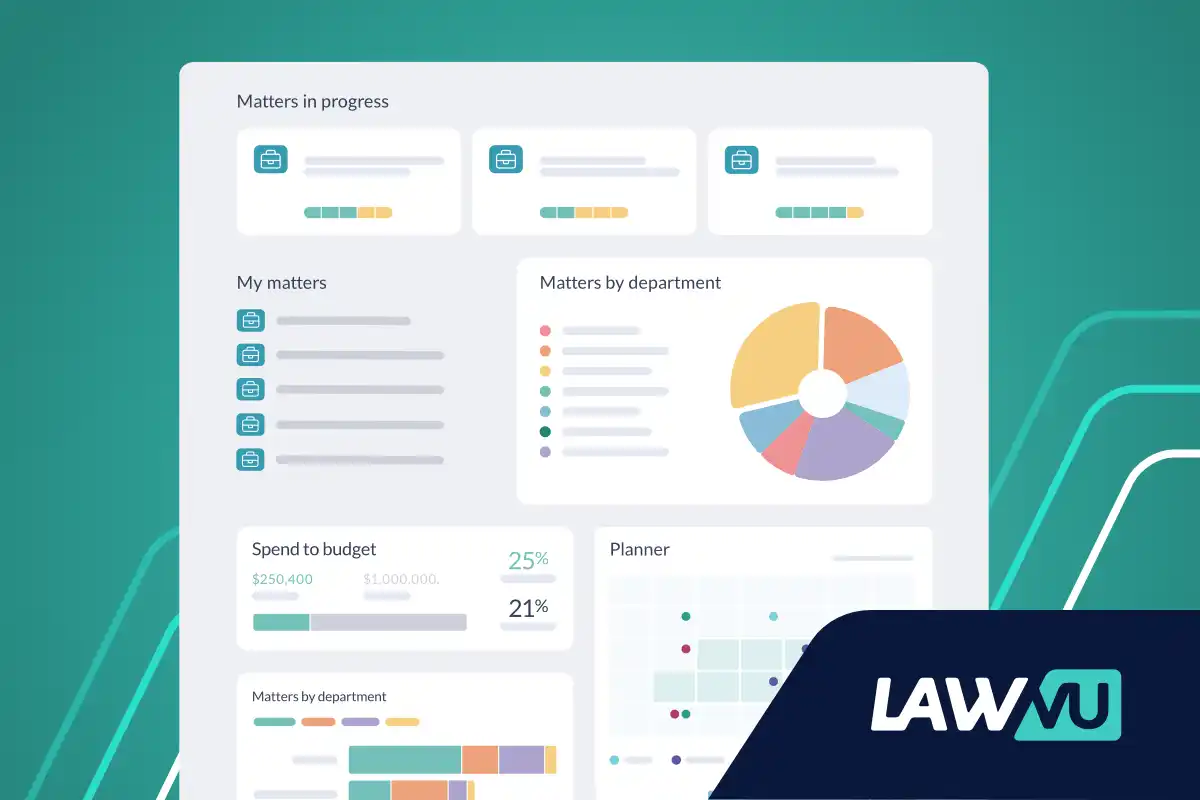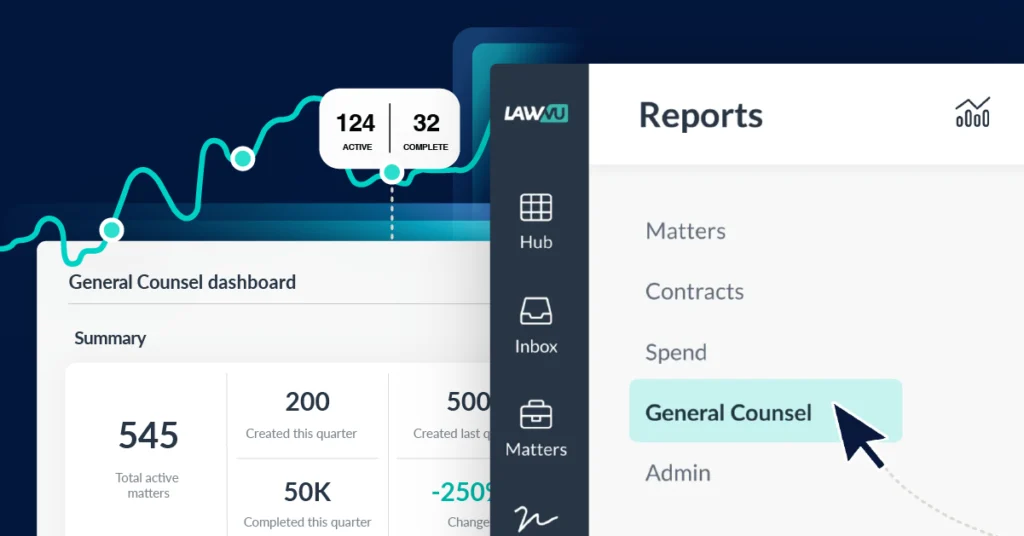Unlocking the power of data for in-house legal teams: A personal journey

I often speak about the power of data, and why it is important for in-house legal teams to embrace it. To emphasise the point, I share an experience from early in my in-house career: working in a legal team that relied on Outlook and a spreadsheet to manage our work and track the basic details of each request – the requester, assigned lawyer, and the dates received and closed. We felt there was no need to spend valuable time capturing other data because, unlike other departments, we weren’t required to report on performance metrics. We thought that was a blessing: no scrambling for quarterly reports or frantic PowerPoint presentations. And let’s be honest, a lawyer’s superpower is words so crunching numbers wasn’t compelling. I know many other in-house legal teams share this experience. If the organisation isn’t requiring us to capture and report on performance, then why spend time thinking about, sourcing and manipulating data? I changed my view after a new CEO commissioned a review of our organisational structure. The goal was to align services and salaries, and to ensure that every department was contributing to the overall strategy of the business. We knew we were adding value, handling complex issues that only legal could resolve and enabling many departments to achieve their KPIs, but I didn’t have a tangible way to prove this. When it came time to make our case for where the legal function should sit in the hierarchy, we didn’t have the data to back us up. All we had was that spreadsheet— essentially a list of tasks we’d completed. We could explain how busy we’d been, but we couldn’t quantify the unique challenges we’d resolved, the specialised skills we’d applied, or the value we had added by keeping work in-house. The review deemed Legal a support function, rather than a strategic one, and we were lumped in other operational services.
My lesson: Executives respond to data, and data proves the value of Legal
That experience taught me a valuable lesson: data and reporting aren’t unnecessary admin; they’re essential for demonstrating the value of our legal function. Without it, the work we do can easily go unnoticed or, worse, misunderstood. Modern In-house legal teams have access to technology that can capture this data effortlessly, but without utilising it, they risk repeating my experience—undervalued and underappreciated. Fortunately, I’ve seen a shift in attitudes towards data. The legal teams that I work with nowadays understand that data, dashboards and reports are critical legal tools with many useful purposes. I‘m going to share some of those purposes, metrics and KPIs with you so that you can create your own data dashboard for your modern in-house function. But first, let’s address a problem that many teams face with their data source.
Siloed data
One of the most significant challenges many in- house teams face is fragmented data because they rely on multiple systems — contract management software, email, and spreadsheets — to manage their work. Each tool serves a specific function but the data they generate often remains isolated within that system. This fragmentation creates inefficiencies as they have to manually gather and consolidate data from various sources to generate reports. This siloed data makes it difficult to see the bigger picture, which is crucial for showcasing the full value of their work. When your data is spread across disconnected systems, it’s nigh impossible to create a single, cohesive narrative about the legal function’s performance. Key metrics, such as the number of matters handled, average turnaround times, contract values, or risk levels, are difficult to track and analyse when the data exists in multiple places. Teams will spend hours (sometimes days!) compiling reports, which are often incomplete or inconsistent. To overcome these challenges, in-house teams are now consolidating their technology solutions by implementing a legal workspace, a centralised system designed to act as a single source of truth and capture data across the entire legal function. By consolidating all data into a single system, they can quickly generate real-time reports with accurate, up-to-date information. This allows them to tell a more compelling story about their value and demonstrate how Legal’s work contributes to the organisation’s success.

Matter management in action
A legal team’s dashboard – from cost centre to strategic value driver
Once you have organised your data source, the next step is to decide which metrics you want to track and how that information will be displayed. Here are some examples of metrics many teams track on their in-house legal dashboards. Overview: This provides a clear view of what is happening by tracking the number of matters and contracts that were created and completed in a reporting period. Show where the team is spending its time by reporting the different types of work and requests made by each department. This not only tells you who is keeping the team busy but also who is not, which might lead to conversations about why those departments are quiet. Volume and completion time: Tracking the number of matters and contracts handled by the team and the average time to close each provides a clear picture of the team’s productivity. It also highlights efficiency gains over time, especially if automation tools or process improvements are implemented. Priority: Assigning a ranking of complexity, risk, and strategic alignment for each matter and contract allows the team to prioritise its workload so that it is focusing its time on the work that is of most value to the organisation. It also provides a compelling report that demonstrates the value of that work to the organisation. Include the number of matters identified as being “urgent”, and you have the ingredients for a legal function that is responsive and value-adding. Legal spend: Tracking spend with external legal service providers is a very common metric that teams are tracking, and is a tangible way to demonstrate value. Including additional data points such as savings from reduced external legal spend, negotiated contract terms, or settlements avoided, provides hard numbers to show the financial impact of Legal’s work – a powerful way to shift the narrative from cost centre to value driver. Contract value: For teams heavily involved in contract negotiation, tracking the total value of contracts handled, along with any value-added negotiations, can provide a clear measure of the legal team’s impact on the business’s bottom line. With this information on your dashboard, you can create reports that highlight your productivity and show how your work directly supports the organisation’s strategic goals. Instead of being seen as a back-office function, your legal team can now position itself as a strategic partner that contributes to the overall success of the business.
The cost of delay is high – the time for data is now
They say the best time for planting a tree was twenty years ago, the second best time is today. The same goes for data. Waiting until you need data to make a case for your legal team’s value is too late. Now is the time to embrace legal workspace technology to effortlessly centralise essential data, and open the door to creating dashboards that enable you to make better decisions about operations, tell compelling stories about Legal’s contributions, and ultimately shed that cost-centre label to secure your rightful place as a strategic partner within your organisation. A legal workspace like LawVu will create your single source of truth with little effort, making your legal function more data driven and impactful. It’s an investment that pays off! And if you want to chat legal to legal, reach out anytime. I’d love to catch up – in person or virtually over a nice cup of Tetley’s.



